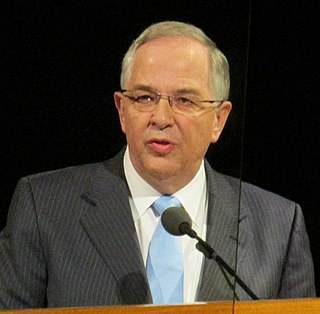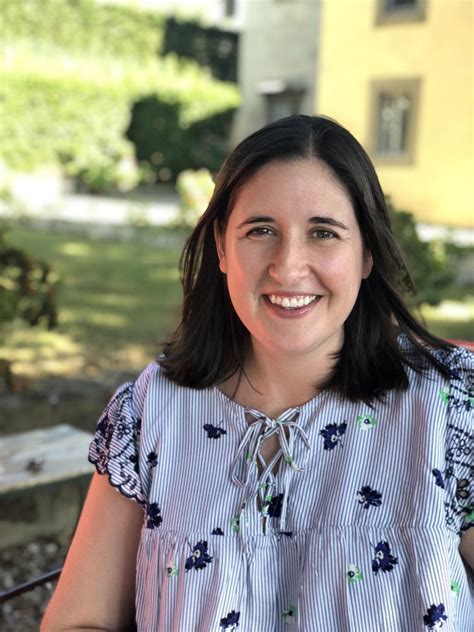A Quote by Neil L. Andersen
But our trials need not be spiritually fatal. They need not take us from our covenants or from the household of God.
Related Quotes
... we did decide to trust Christ, but the reason we made that decision is that God had first made us spiritually alive. ... God comes to us when we're spiritually dead, when we don't even realize our condition, and gives us the spiritual ability to see our plight and to see the solution in Christ. God comes all the way, not partway, to meet us in our need. When we were dead, He made us alive in Christ. And the first act of that new life is to turn in faith to Jesus.
If God had perceived that our greatest need was economic, he would have sent an economist. If he had perceived that our greatest need was entertainment, he would have sent us a comedian or an artist. If God had perceived that our greatest need was political stability, he would have sent us a politician. If he had perceived that our greatest need was health, he would have sent us a doctor. But he perceived that our greatest need involved our sin, our alienation from him, our profound rebellion, our death; and he sent us a Savior.
We need to surrender our attachments to government in every aspect of life. We need to give up our dependencies on the state, materially and spiritually. We should not look to the state to provide us financially or psychologically. Let us give up our longing for welfare, our love of war, and our desire to see the government control and shape our fellow citizens.
You see, the secret of the gospel is that we become more spiritually mature when we focus less on what we need to do for God and focus more on all that God has already done for us. The irony of the gospel is that we actually perform better as we grow in our understanding that our relationship with God is based on Christ's performance for us, not our performance for him.
All of life is to be lived in the presence and power of God, not just for a few minutes or even an hour in the morning. It's as though we want to take a tiny nibble of spiritual food and hope that sustains us for a while; then we wonder why we're so weary and unable to live as Christ calls us to live. To truly enjoy the abundant life Jesus invited us into, we need to be more aware of God all the time, just as he was. We need that regular, focused quiet time, but we also need to take our awareness of and commitment to God into our more numerous "noisy times".
God allows us to dace difficulties so that our faith will be stretched and refined. The trials we face provide an excellent opportunity for us to declare our dependence on God and not on ourselves. The way we win the battle with discouragement is by humbling ourselves before God and telling Him that we need Him. There is only one way to do this, and it is through prayer.
We need strength beyond ourselves to keep the commandments in whatever circumstance life brings to us. The combination of trials and their duration are as varied as are the children of our Heavenly Father. No two are alike. But what is being tested is the same, at all times in our lives and for every person: will we do whatsoever the Lord our God will command us?
We must embrace our differences, even celebrate our diversity. We must glory in the fact that God created each of us as unique human beings. God created us different, but God did not create us for separation. God created us different that we might recognize our need for one another. We must reverence our uniqueness, reverence everything that makes us what we are: our language, our culture, our religious tradition.
God reminds us again and again that things between He and us are forever fixed. They are the rendezvous points where God declares to us concretely that the debt has been paid, the ledger put away, and that everything we need, in Christ we already possess. This re-convincing produces humility, because we realize that our needs are fulfilled. We don’t have to worry about ourselves anymore. This in turn frees us to stop looking out for what we think we need and liberates us to love our neighbor by looking out for what they need.
You are worthy! Let those words sink deep into your heart. You are worthy. Life can get overwhelming for us, as our busy schedules keep us on our toes. Sometimes we forget that we need to intentionally slow down, take a deep breath, and remind ourselves of our purpose, the very foundation of why we do what we do. When we neglect to quiet our souls and rest in God's amazing grace, we miss out on the intimate opportunities where God assures us of our worthiness, clarifies our purpose, and strengthens us to endure each day.
Why pray? Evidently, God likes to be asked. God certainly does not need our wisdom or our knowledge, nor even the information contained in our prayers ("your Father knows what you need before you ask him"). But by inviting us into the partnership of creation, God also invites us into relationship. God is love, said the apostle John. God does not merely have love or feel love. God is love and cannot not love. As such, God yearns for relationship with the creatures made in his image.
We need a home in the psychological sense as much as we need one in the physical: to compensate for a vulnerability. We need a refuge to shore up our states of mind, because so much of the world is opposed to our allegiances. We need our rooms to align us to desirable versions of ourselves and to keep alive the important, evanescent sides of us.
































